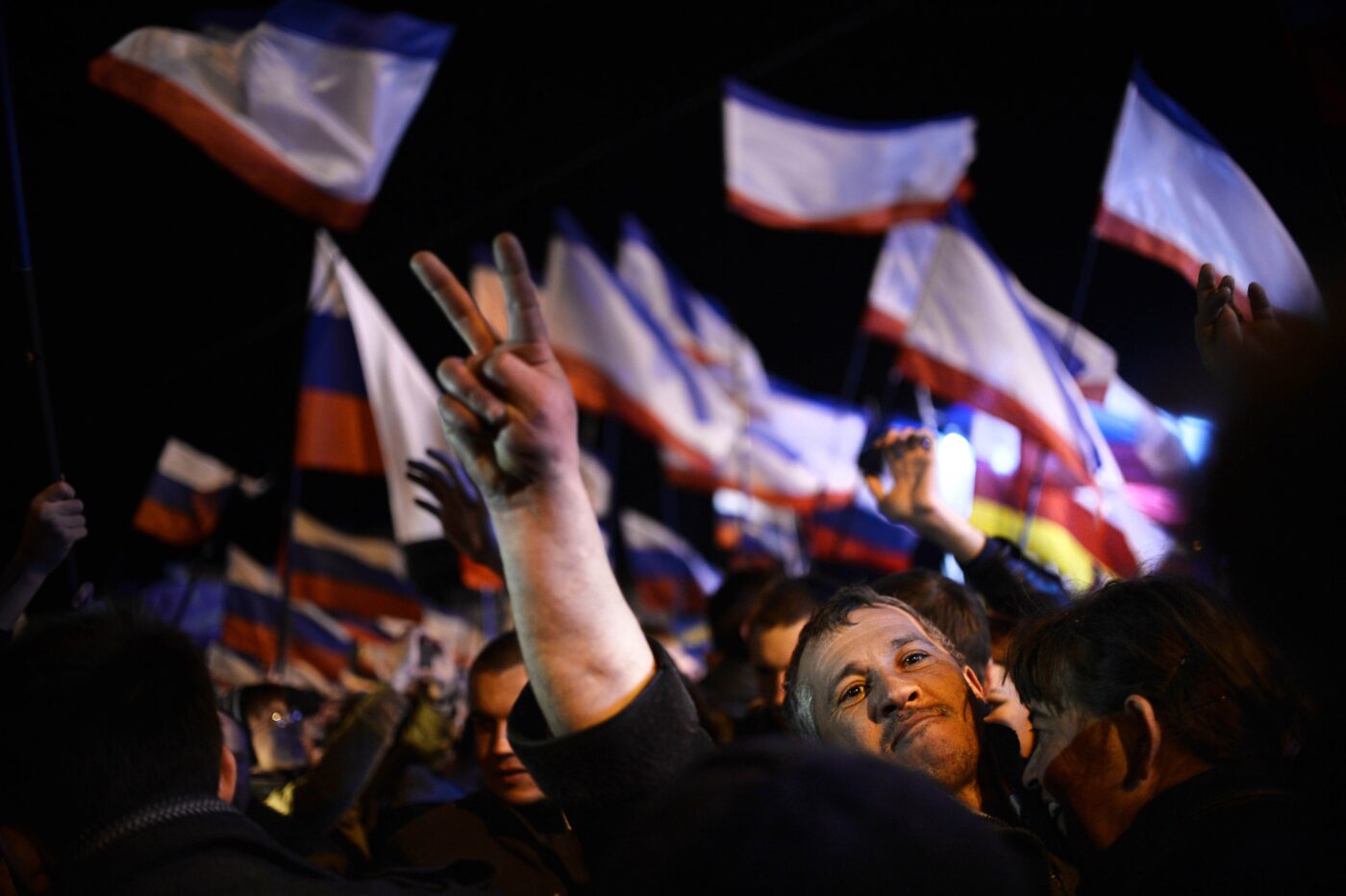ON FEBRUARY 28, hundreds of armed men seized major government buildings in what was then the Ukrainian territory of Crimea. Russian flags were raised and Crimea found itself amidst an international crisis.
A month later, a treaty was signed, formalizing Russia’s annexation of Crimea after a referendum that saw around 97% of voters in favor. However, the move was met by strong opposition from the international community, with the United Nations (UN) issuing a resolution declaring the referendum illegitimate and emphasizing Ukraine’s right to territorial integrity.
The Crimean Peninsula, comprised of the Autonomous Republic of Crimea and Sevastopol, has been part of Russia for centuries, joining Ukraine only in 1954. Crimea’s accession to Russia came after the Ukrainian revolution on February that impeached the Russian-backed President Viktor Yanukovych. His ousting resulted in multiple pro-Russian protests for independence in Crimea and the arrival of Russian troops. After the referendum results, Crimea declared its secession from Ukraine, with Russian President Vladimir Putin formally naming it a Russian Federal District.
With daily clashes between pro-Russian and Ukrainian groups in Crimea and the strained ties between Russia and the West, the crisis is still ongoing. Crimea also faces an economic crisis as Ukrainian firms have been forced out by the Russian rule.
From internal conflict
The friction within Ukraine that led to Crimea’s separation is largely between pro-Western and pro-Russian factions. Last November, Yanukovych ended a deal meant for improving economic ties with the European Union (EU). He then incited public outcry for seeking Russian aid instead. Hundreds were confirmed dead and thousands injured, as pro-Western citizens and police forces clashed in the capital city of Kiev.
“[Ukraine] is split as to whether it should ally itself with Russia, which is willing to immediately spend large amounts of money on Ukraine, or Western Europe, which is strongly associated with functioning democratic governments and wealth,” observes European Studies Department Instructor Manuel Enverga III. “Thus, the challenge for the current government is to build unity despite the polarized context.”
The local crisis spiraled into an international level with Crimea’s capture by pro-Russian factions. On March 24, Russian forces seized the remaining military bases in Crimea, effectively ending the 60-year Ukrainian rule.
The United States (US)—which has recently been at odds with Russia over political issues—and many EU-member states have levied financial and travel sanctions on Russia. These entail the blacklist and ban of individuals and companies involved in the annexation.
“Coupled with the Russian-Georgian war in 2008, we haven’t seen this much tension between the West and Russia since the Cold War,” says Leo Abot, the executive director for research and advocacy of The Ateneo Assembly.
The Russian goal
Despite the backlash, Putin insists that the referendum complied with international law and reflected Crimea’s right to self-determination. He condemned Western hypocrisy with a list of foreign policy grievances including the recognition of Kosovo’s secession from Serbia in 2008.
Moreover, he dubbed the accession a reversal to a “historical injustice” made by the Soviet Union. He said that Crimea “has always been and remains an inseparable part of Russia.”
However, Political Science Department Lecturer Hansley Juliano believes that Putin is testing the extent of Russian power.
“He’s basically asserting that Russia is trying to play superpower again and Crimea will be a test case if they can actually succeed,” he says in a mix of English and Filipino. Juliano also points out that the Russians are trying to show “that the US is no longer the juggernaut it once was [in the hope of shaping] the balance of contention [between nations].”
PH rejects referendum
Through a statement by the Department of Foreign Affairs (DFA), the Philippines backed the UN Resolution with a “principled position on sovereignty, territorial integrity, rule of law and peaceful settlement of disputes.”
For Abot, this comes as no surprise, saying that support for secession and self-determination will “run counter to the Philippine government’s own efforts to maintain the country’s territorial integrity in the south” and weaken the resolve to “stop secessionist movements in Mindanao.”
Enverga cites a similar case, saying that the principles are the “same norm that the Philippines is banking on as it defends its claim over islands in the so-called ‘West Philippine Sea.’”
However, Senator Miriam Defensor Santiago has spoken otherwise. In a report by Rappler, the Senate Committee on Foreign Relations chair said that the nation should remain neutral, as “international law neither prohibits nor promotes secession.”
‘Peaceful dialogue’
The futures of Crimea and Ukraine remain unclear, with almost daily reports of hostilities and economic instability.
“The ongoing crisis may continue for a while because the opposing parties refuse to meet eye-to-eye,” says Abot. “Putin has no reason to let go of Crimea as long as the West does not present any genuine military threat.”
Despite this, the global community expresses hope in an eventual diplomatic and peaceful resolution. “We support actions toward de-escalating tensions in the region and for comprehensive, inclusive and peaceful dialogue and reconciliation,” DFA said in a statement last March 26.




